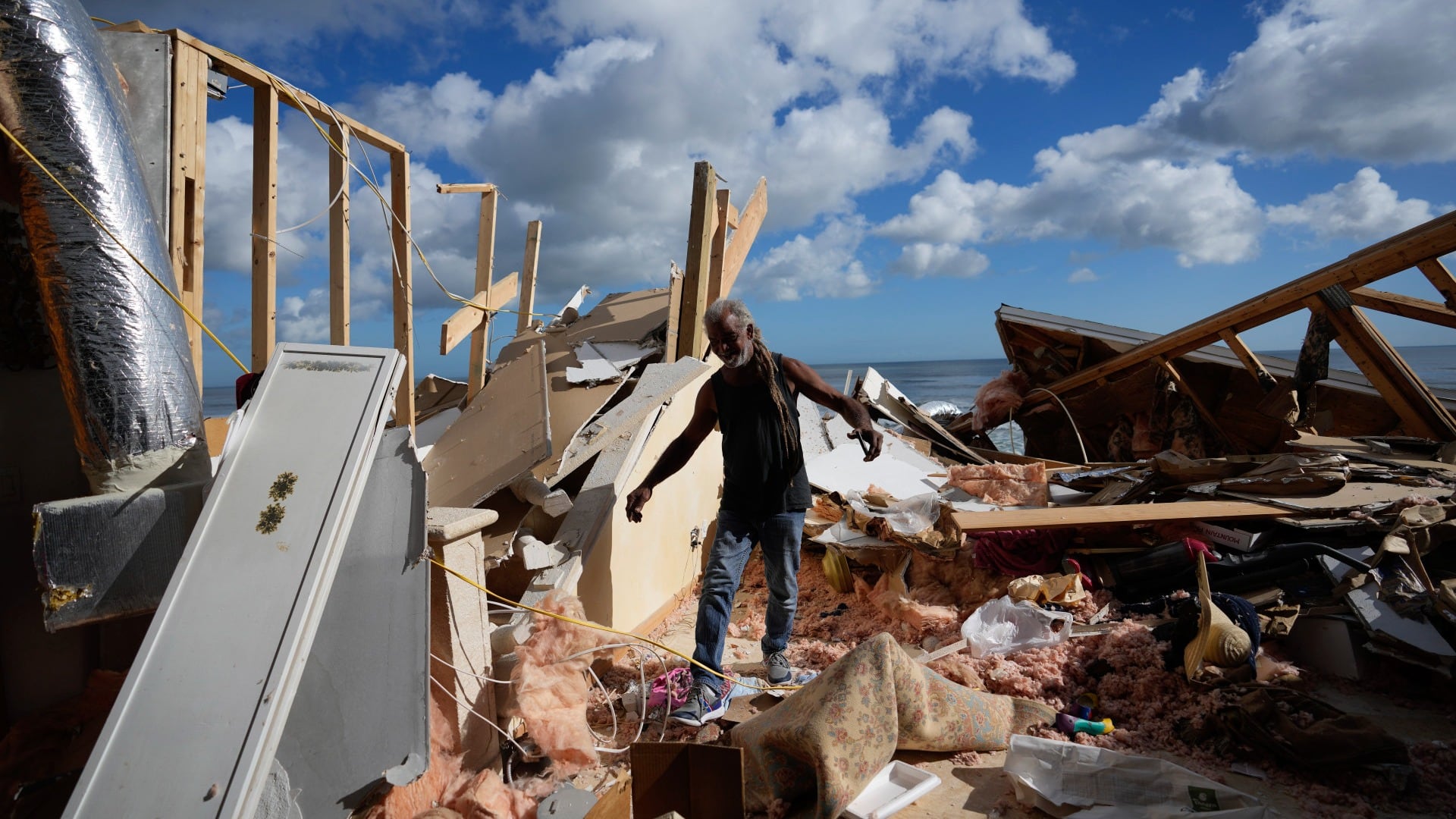Travelers, considered a bellwether for the insurance industry due to its size, said catastrophe losses doubled in its most recent quarter and the company swung to a loss as severe wind and hailstorms in a number of regions led to rising coverage claims.
The increasing frequency of extreme weather from hurricanes and wildfires to high winds and hail, are leading to disruptions in the insurance industry with some companies pulling out of states that are getting hit hard, such as Florida and California.
Catastrophe losses at Travelers jumped to $1.48 billion for the three-month period ending on June 30, up from $746 million in the same period last year.
Insurers have retreated from regions that have been hit repeatedly by severe weather, even after raising premiums for years to cover those losses.
State Farm and Allstate have pulled back from California's home insurance market, saying that increasing wildfire risk and soaring construction costs mean they'll no longer write new policies in the nation’s most populous state.
This week AAA said that it will not renew “a very small percentage” of homeowners and auto insurance policies in hurricane-wracked Florida, joining other insurers in limiting their exposure in the Sunshine State despite efforts by lawmakers to calm the volatile insurance market.
AAA insists it's not leaving Florida, but that last year’s devastating hurricane season had led to an unprecedented rise in reinsurance rates, making it more costly to operate there.
Florida has struggled to maintain stability in the state insurance market since 1992 when Hurricane Andrew flattened Homestead, wiped out some insurance carriers and left many remaining insurers anxious about writing or renewing policies in Florida. Risks for carriers have also been growing as climate change increases the strength of hurricanes and the intensity of rainstorms.
Rising claims at The Travelers Cos. contributed to a $14 million loss, or 7 cents per share. Adjusted for non-repeating costs, the company reported earnings of 6 cents per share, but that’s still far from the per-share profit of $2.27 that analysts polled by Zacks Investment Research had expected.
A year earlier the New York company turned a $551 million profit, or $2.27 per share.
Adjusted revenue reached $10.13 billion, however, outpacing expectations as net written premiums rose to an unprecedented $10.3 billion. Net written premiums are a measure of how much of the premiums paid by customers that a company gets to keep for assuming risk.
Shares rose slightly Thursday.
Ford is recalling more than 355,000 of its pickup trucks across the U.S. because of an instrument panel display failure that’s resulted in critical information, like warning lights and vehicle speed, not showing up on the dashboard.
Nvidia reported a 56% increase in second-quarter revenue and a 59% rise in net income compared to a year ago.
The Rev. Al Sharpton is set to lead a protest march on Wall Street to urge corporate America to resist the Trump administration’s campaign to roll back diversity, equity and inclusion initiatives. The New York civil rights leader will join clergy, labor and community leaders Thursday in a demonstration through Manhattan’s Financial District that’s timed with the anniversary of the Civil Rights-era March on Washington in 1963. Sharpton called DEI the “civil rights fight of our generation." He and other Black leaders have called for boycotting American retailers that scaled backed policies and programs aimed at bolstering diversity and reducing discrimination in their ranks.
President Donald Trump's administration last month awarded a $1.2 billion contract to build and operate what's expected to become the nation’s largest immigration detention complex to a tiny Virginia firm with no experience running correction facilities.
Netflix CEO Ted Sarandos claims audiences don't want to watch Netflix movies in theaters, but that seems not to be the case recently.
Chipmaker Nvidia is poised to release a quarterly report that could provide a better sense of whether the stock market has been riding an overhyped artificial intelligence bubble or is being propelled by a technological boom that’s still gathering momentum.
Cracker Barrel said late Tuesday it’s returning to its old logo after critics — including President Donald Trump — protested the company’s plan to modernize.
Low-value imports are losing their duty-free status in the U.S. this week as part of President Donald Trump's agenda for making the nation less dependent on foreign goods. A widely used customs exemption for international shipments worth $800 or less is set to end starting on Friday. Trump already ended the “de minimis” rule for inexpensive items sent from China and Hong Kong, but having to pay import taxes on small parcels from everywhere else likely will be a big change for some small businesses and online shoppers. Purchases that previously entered the U.S. without needing to clear customs will be subject to the origin country’s tariff rate, which can range from 10% to 50%.
Southwest Airlines will soon require plus-size travelers to pay for an extra seat in advance if they can't fit within the armrests of one seat. This change is part of several updates the airline is making. The new rule starts on Jan. 27, the same day Southwest begins assigning seats. Currently, plus-size passengers can pay for an extra seat in advance and later get a refund, or request a free extra seat at the airport. Under the new policy, refunds are still possible but not guaranteed. Southwest said in a statement it is updating policies to prepare for assigned seating next year.
Cracker Barrel is sticking with its new logo. For now. But the chain is also apologizing to fans who were angered when the change was announced last week.













